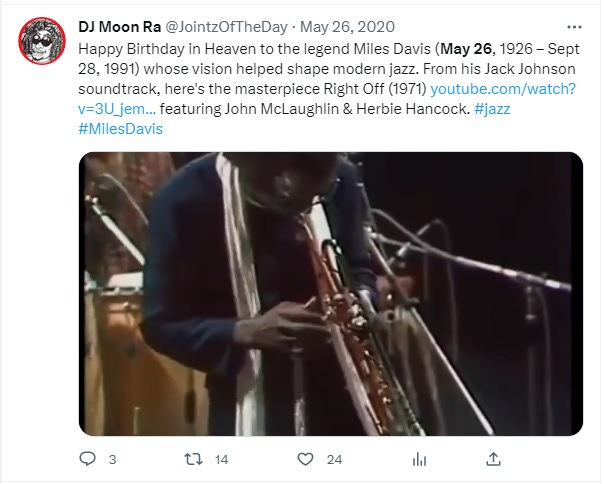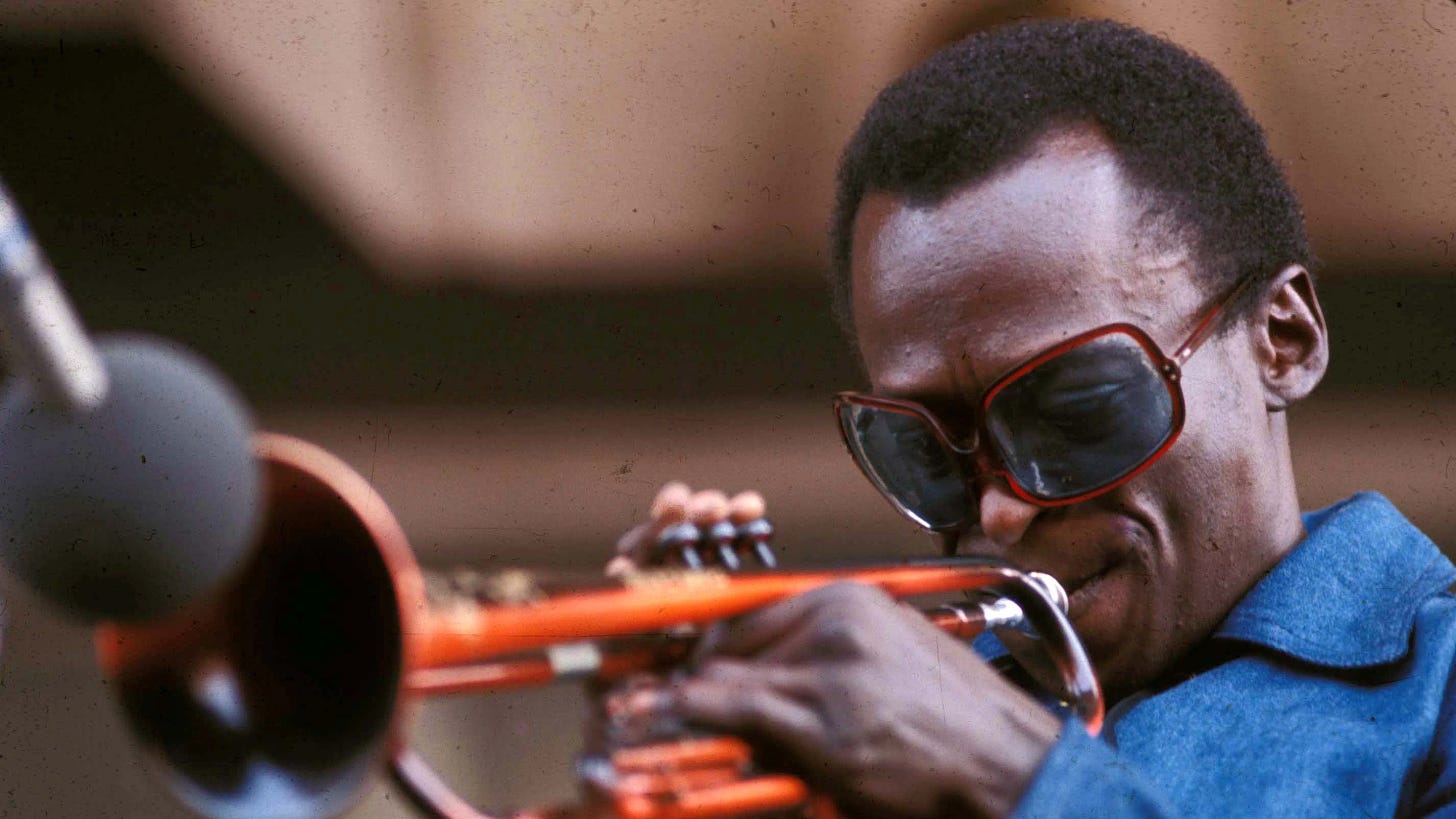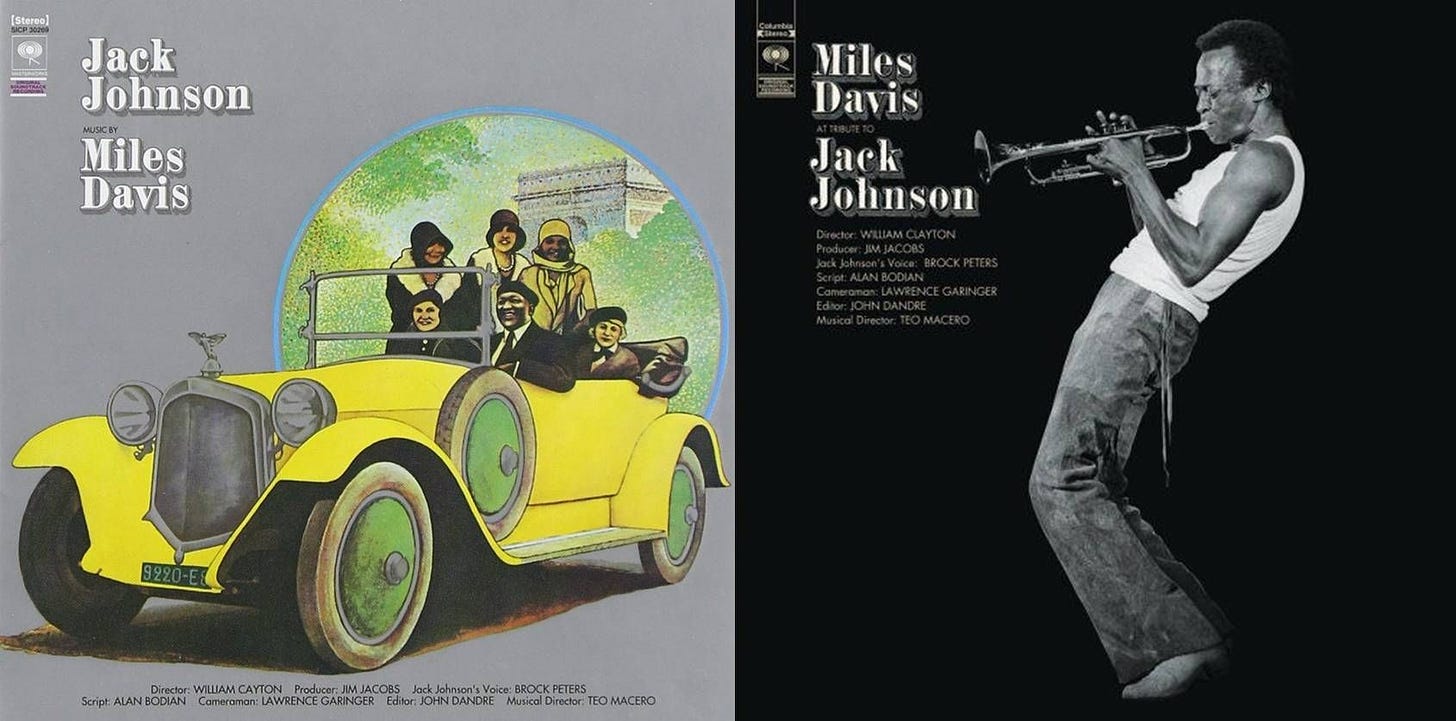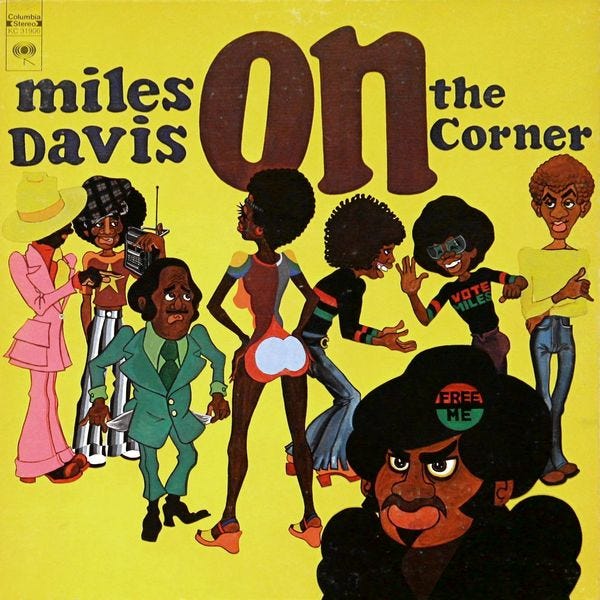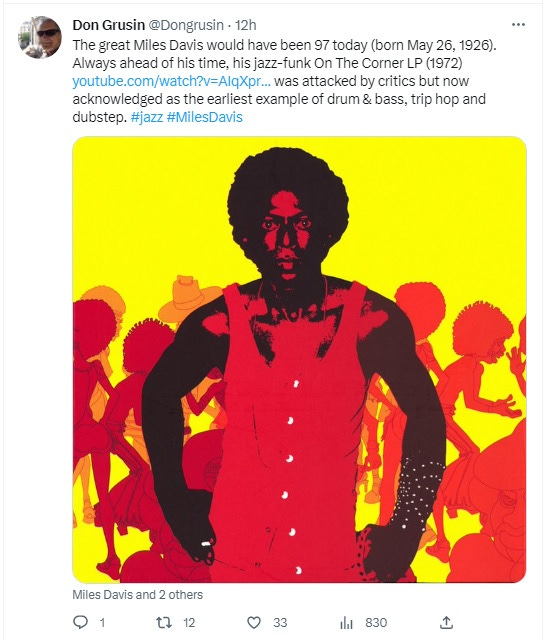Miles Davis (May 26, 1926 – September 28, 1991) – Right Off (1971)
From the soundtrack to Jack Johnson, this jazz-funk masterpiece grew out of a jam session between John McLaughlin, Michael Henderson and Billy Cobham.
View most updated version of this post on Substack
Search our full archives
Miles Dewey Davis III was a titan of jazz. He pioneered entire genres including cool jazz, post-bop, and fusion, helping to kickstart the jazz-funk movement of the 1970s.
For an overview of his life and times, see Rolling Stone’s excellent tribute “Miles Davis: The Man Who Changed Music,” published shortly after his death in the fall of 1991.
See our post from earlier this month on the 1956 recording session that yielded “Woodyn' You” (as part of material that would end up on four classic albums) for more background on Davis' First Great Quintet.
Davis composed the soundtrack for the 1970 documentary Jack Johnson, about the first Black heavyweight boxing champion of the world. Johnson successfully defended his title from 1908-1915, despite the unrelenting racism he faced at the height of the Jim Crow era. It was Davis’ second film soundtrack, having previously recorded the score to Louis Malle’s Ascenseur pour l’échafaud (Elevator to the Gallows) in 1958.
The Jack Johnson soundtrack was released in early 1971, with its entire first side devoted to the nearly 27-minute-long masterpiece “Right Off.” It featured Davis on trumpet, Michael Henderson on electric bass, Billy Cobham behind the drums, Steve Grossman on sax, John McLaughlin playing guitar and Herbie Hancock on the organ. The album was produced by Teo Macero, who stitched together “Right Off” from several takes recorded at Columbia Studios in New York City in April, 1970 and a solo Davis had recorded in November, 1969.
The track first sprang to life on April 7, 1970 in a jam session that began with John McLaughlin improvising guitar riffs while the band members were waiting for Davis to arrive for the day’s recording schedule. He was soon joined by Billy Cobham and Michael Henderson. As their jam heated up, the producers grabbed Herbie Hancock, who was also in the building for another session, and he sat in on the Farfisa organ. Davis eventually showed up and lit right into his solo.
In 1972, Davis decided he wanted to reconnect with the young Black audience which had mostly turned away from jazz and embraced the funk pioneered by James Brown and Sly and the Family Stone. That fall he released the jazz-funk, groove heavy album On The Corner, which was vilified by critics who didn’t understand it at all and dismissed it as noise.
On The Corner once again featured the core players from Jack Johnson, with Henderson on bass, McLaughlin on guitar, and Hancock on keyboards. Additional personnel included Chick Corea on Fender Rhodes and keyboards, Jack DeJohnette on drums, Bennie Maupin on bass clarinet, Cedric Lawson on organ, Reggie Lucas on guitar, and James Mtume on percussion.
Further info:
“Miles Davis: The Man Who Changed Music,” by Robert Palmer, Rolling Stone, November 14, 1991.
“Celebrating Miles Davis' funk masterpiece 'On the Corner' at 50,” by Tyler Golsen, Far Out Magazine, October 11, 2022.
#jazz #funk #MilesDavis




